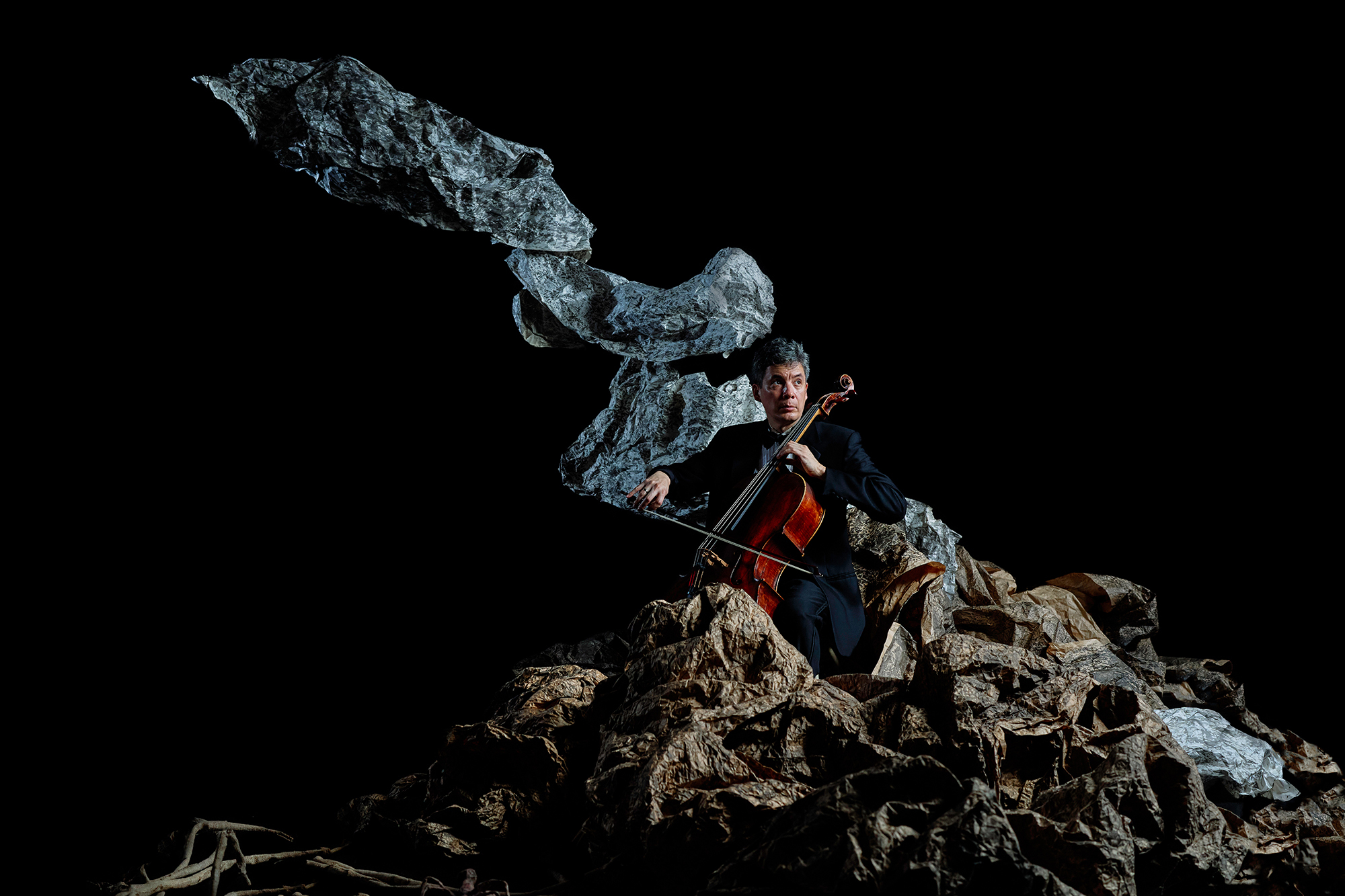
When Penn Live Arts (PLA) presents “Bartok’s Monster” on Sunday, Jan. 21, it will mark a nearly unprecedented PLA artistic collaboration between categorization-defying Pig Iron Theatre Company, English Department lecturer Jay Kirk, Whitebox Theatre installation artist Sebastienne Mundheim, and Penn’s string-quartet-in-residence Daedalus Quartet. The result promises to be something special.
The production, which will be performed twice on Jan. 21 and runs approximately 70 minutes, draws inspiration from Kirk’s 2020 experimental nonfiction book, “Avoid the Day: A New Nonfiction in Two Movements.” A complicated work that lives up to its “New Nonfiction” subtitle, it engages with themes of grief and adventure while also telling the gonzo journalism story of an attempt to track down the original music manuscript of “String Quartet No. 3” by Hungarian composer Béla Bartók, who debuted the piece in Philadelphia in 1928. (That manuscript now resides at the Kislak Center for Special Collections, Rare Books and Manuscripts and is available for viewing.)
Musically, this 15-minute third quartet is at the heart of “Bartok’s Monster,” which will be presented as a fusion of lecture, concert, and theater. The Deadalus Quartet is currently engaged in a multi-semester series of events exploring the six quartets of Bartok. The concert will also contain pieces by Beethoven and Alban Berg, among others.
“The idea is it’s a theater event disguised as a concert, or a concert with theatrical elements. One of the things that I loved about Jay’s book is it pretends to be one thing and turns into another thing, and that’s what we’re going to try to do with this performance,” says Tom Kraines, a cellist with the Daedalus Quartet.
Kraines, along with the other collaborators, encountered Kirk’s book while in lockdown during the COVID-19 pandemic and was enamored with its characterization of Bartók and his time spent in Transylvania, along with some of the conclusions of the book.
“What we’re trying to do with this concert is to pose the question, ‘What is this piece about? What does it mean?’ And it winds up being an interesting but meaningless question,” Kraines says. “The answer is this kind of emptiness or hollowness.”
This is a theme that’s been foundational for organizing the production.
“I have an image of pulling on a string, but then you don’t find anything at the very end. So that there’s got to be a beauty in the pulling on the string, but also there’s the despair of never finding the source,” says Dan Rothenberg, artistic director of Pig Iron Theatre Company, who has synthesized many of the elements of the piece. “I think in trying to create a theatrical analog for the book, it begins as a nice evening of classical music with some sections from Jay’s book and some music history that provides context for Bartók, but over the course of the evening, it’s as though the darker forces hidden inside the music start to take over the proceedings.”
Aesthetically, says Mundheim, the piece is inspired by images summoned from her initial close reading of the text and scenes that depicted Bartók’s relationship with the natural world and a hollow earth. At the time, she says, she imagined “big, thematic visuals” that were metaphorical and influenced by walks in the Wissahickon with Kirk, discussing the book.
“I think the most important thing for me—and I don’t know if it will manifest visually—is really what the ‘void’ is, and one of the things that was so attractive to me about Jay’s story is the density of language,” she says. “The density of language is about the pleasure of language, but also about this attempt to articulate what cannot be articulated. I think both Jay and Bartók moved to be against interpretation.”
Mundheim constructed a paper landscape that has movable parts that the performers can work with. The landscapes work with reds, browns, yellows, and black and white.
Partly funded by a 2023 grant from The Sachs Program for Arts Innovation, this is the second time Pig Iron Theatre Company has collaborated with Penn Live Arts.
“We’re thrilled to be working with Pig Iron Theatre Company again, following our incredibly successful co-production of ‘A Period of Animate Existence’ in fall 2017,” says Penn Live Arts executive and artistic director Chris Gruits. “This world premiere program harnesses the creative energies of the University and beyond, taking inspiration from English professor Jay Kirk’s kaleidoscopic memoir and featuring the musical talents of Penn’s quartet-in-residence, Daedalus Quartet. We’re excited for audiences to experience this riveting collaboration among artists and artistic mediums.”







